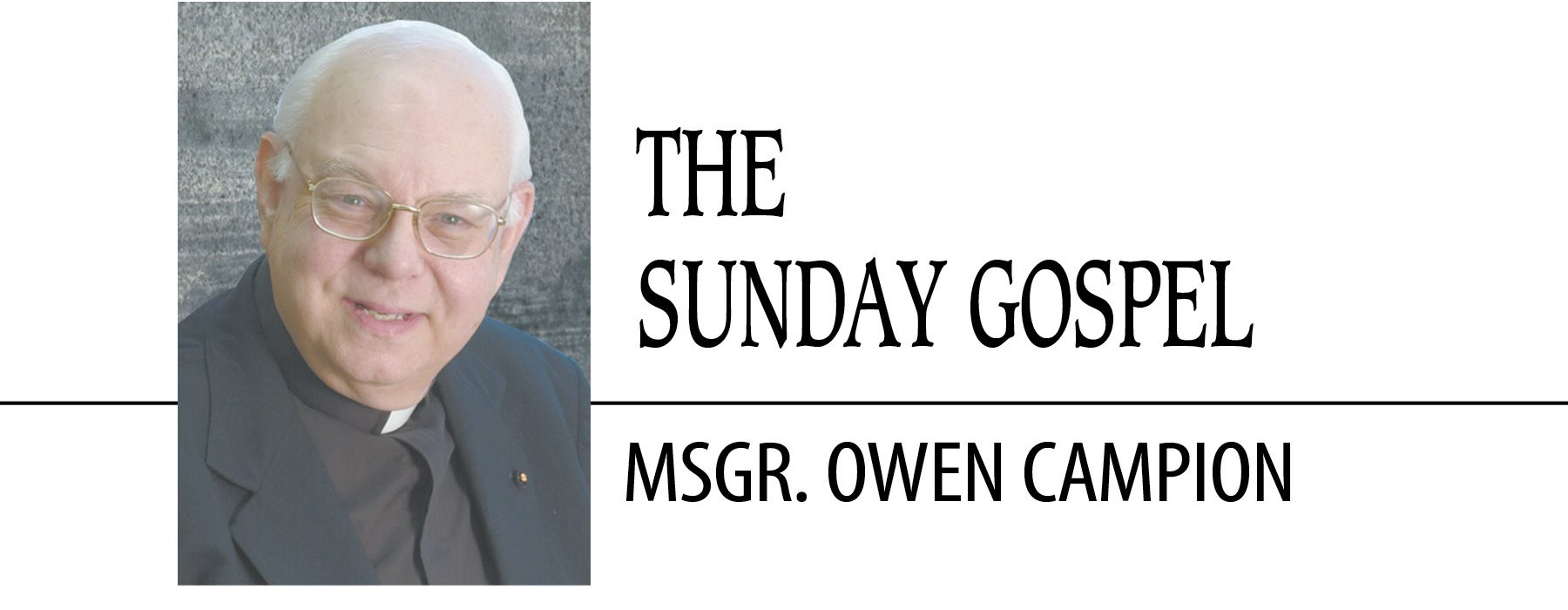January 15, 2022 // The Sunday Gospel
Mary’s example shows to us the glory of the Lord
Second Sunday in Ordinary Time
John 2:1-11
The Book of Isaiah furnishes this weekend’s first reading.
When the third section of Isaiah was written, the Hebrew people had just emerged from a terrible period in their history. Their homeland, divided into two kingdoms after the death of King Solomon, had been overrun by the mighty Babylonian Empire, centered in today’s Iraq.
Many died or were killed in the conquest. Others were taken to Babylon, the imperial capital, where they and their descendants languished for four generations until political fortunes changed when the more powerful Persians conquered Babylonia itself.
As a result, the exiles were allowed to return to their homeland. The prophets did not see the sequence of events leading to this happy release as merely coincidental or the result of human decision-making. Rather, God provided for it. God had promised to protect the people.
The people upset the arrangement by sinning. Despite their sinfulness, however, God was constant. He provided.
For its second reading this weekend the Church presents a passage from St. Paul’s First Letter to the Corinthians.
Leading the Corinthian Christians to genuine fidelity was a considerable challenge for Paul. In reaction to rivalries and arguments in Corinth, Paul wrote what has become a blueprint for Christian judgment of people.
Each human being, a child of God, is precious. Each has special gifts and opportunities. Such diversity was welcome, since it meant that there were so many occasions for individual believers to bring the sweetness of the gospel into the world. Paul even listed different skills and talents to make his point.
St. John’s Gospel supplies the third reading. Unique to John, the miracle at Cana in Galilee was the first recorded of the Lord’s miracles. It marked the beginning of the Lord’s public ministry.
The emphasis usually lies upon the marvel of the changing of the water into wine. This indeed was remarkable, but the story has other powerful lessons. A great lesson is about Mary.
John’s Gospel never names her. It always simply refers to Mary as “the mother” of Jesus. This is not an oversight. It stresses her unique role as the Lord’s earthly parent.
The response of Jesus to the obvious embarrassment of the host in not having enough wine for the guest can be puzzling. Was the Lord indifferent to the host’s distress? His reply only stressed that the messianic mission was not to provide for human needs, but to draw all to God and to eternal life.
Mary entered the picture. First, Jesus heard her. Secondly, her faith was unqualified and frank. She trusted the Lord, telling the servers to do whatever the Lord ordered them to do.
This reading reveals the power and mission of Jesus as well as Mary’s perfect response in faith to the Lord.
Reflection
The Church celebrated the feast of the Nativity at Christmas, rejoicing in the birth of the Lord in time and space. In observing the feast of the Epiphany, the Church joyfully proclaimed that the Lord came to show all of us the unlimited love of God. The feast of the Baptism of the Lord told us that Jesus lived and eventually died for us. He became one of us.
This weekend, in the words of Isaiah, the Church declares that earthly life would be beautiful if we all loved God in return. How do we love God? The story of Cana tells us.
Jesus teaches that no human situation should distract us from the fact that being with God is our destiny and therefore our priority.
Mary instructs us that we can go to Jesus with any worry, but her example tells us, as she told the servants, that we must follow the Lord and trust Him.
The best news. Delivered to your inbox.
Subscribe to our mailing list today.






